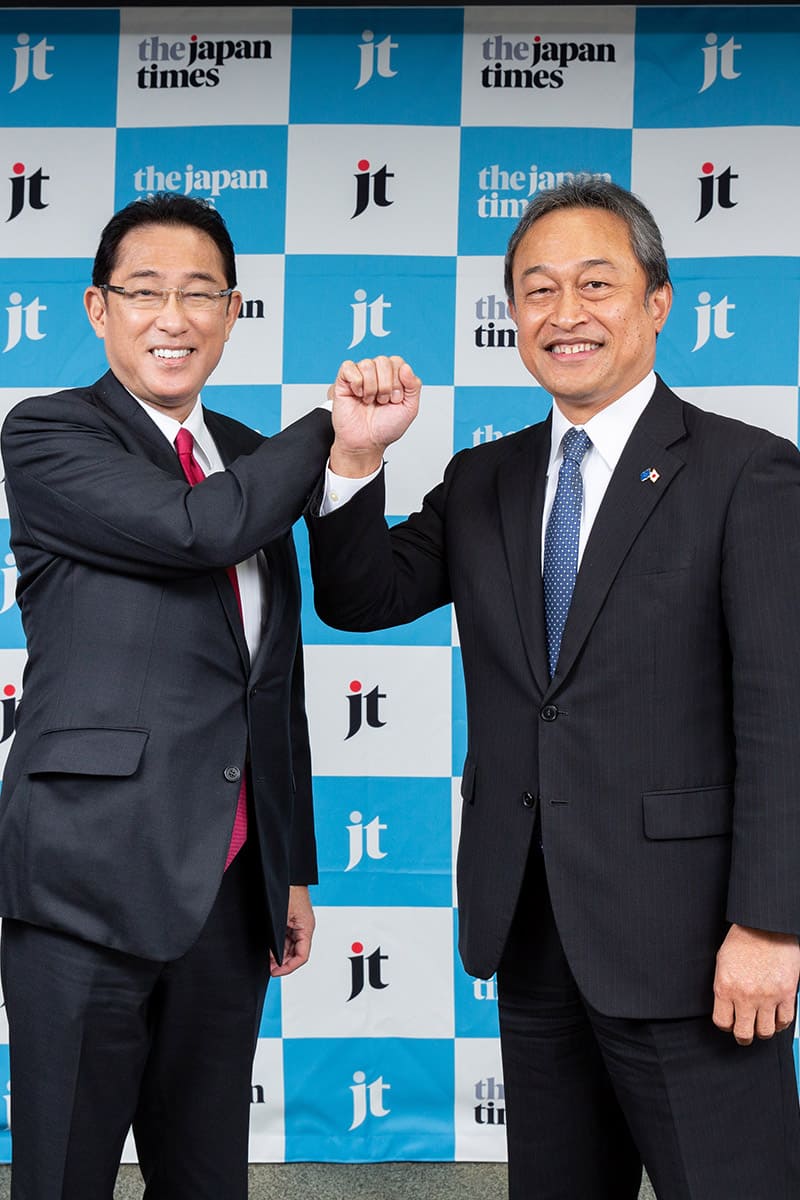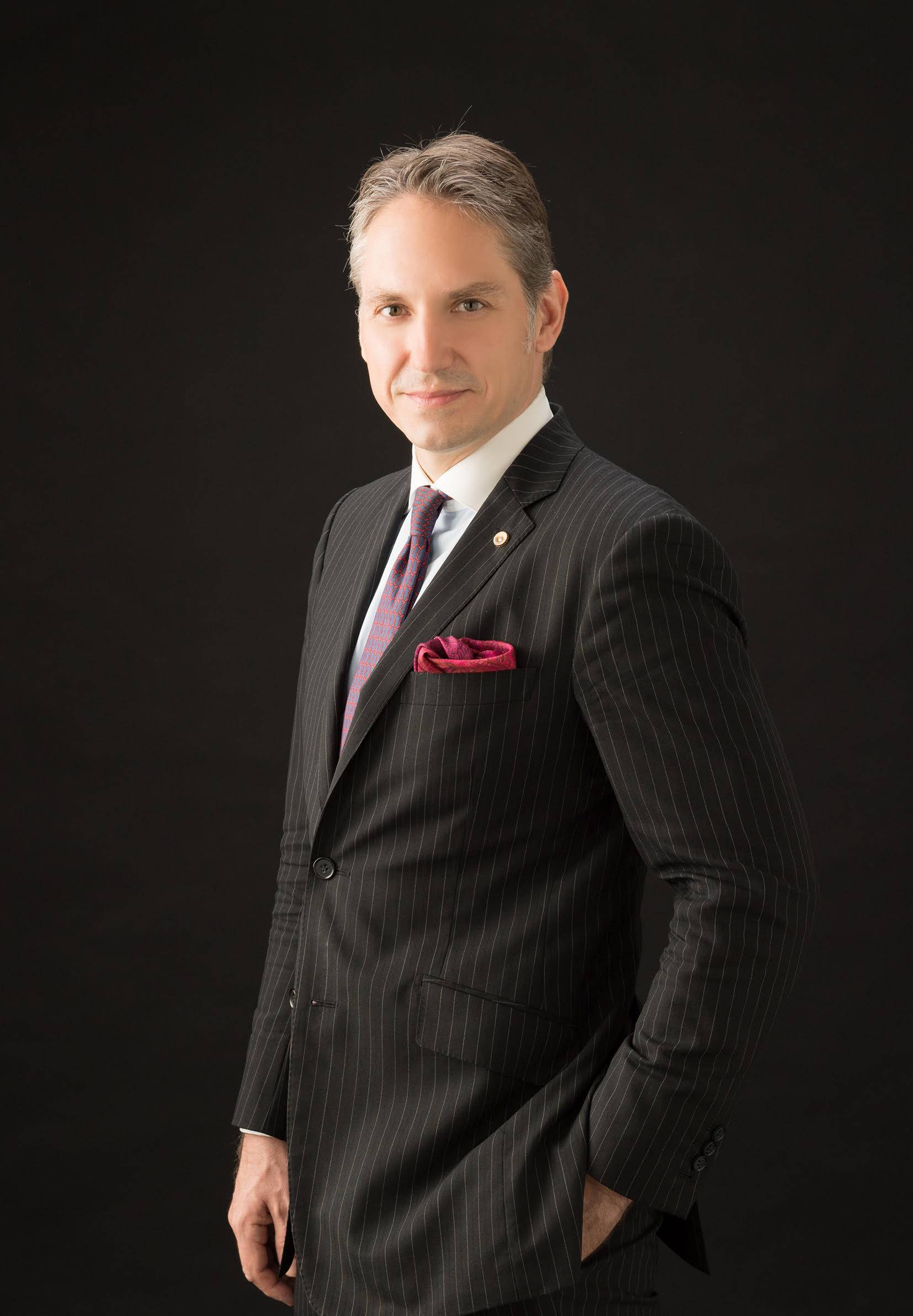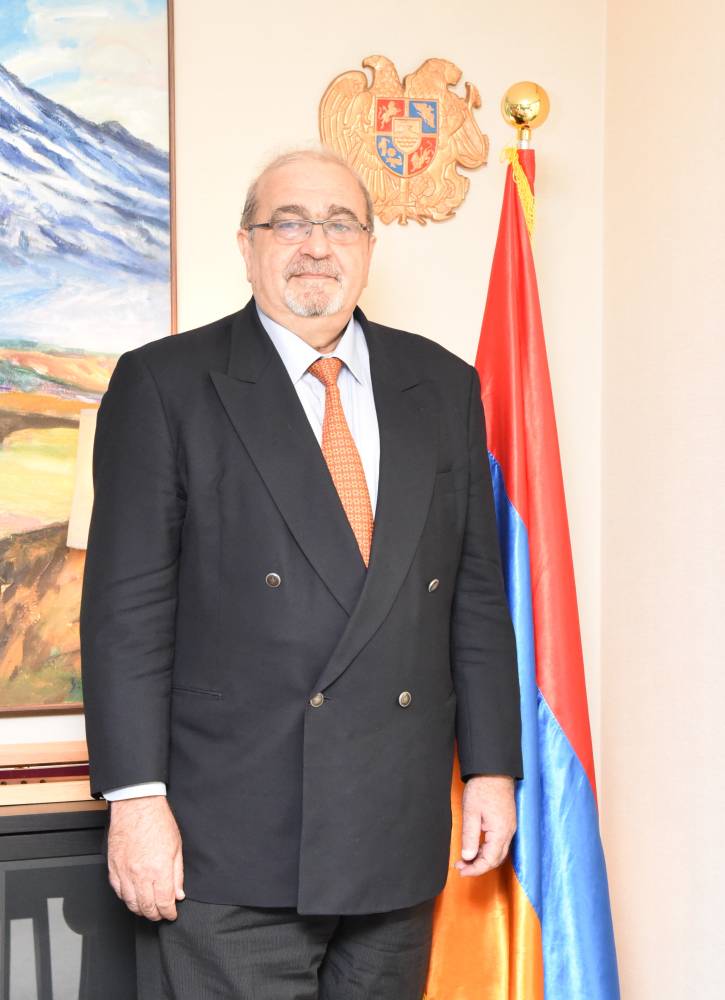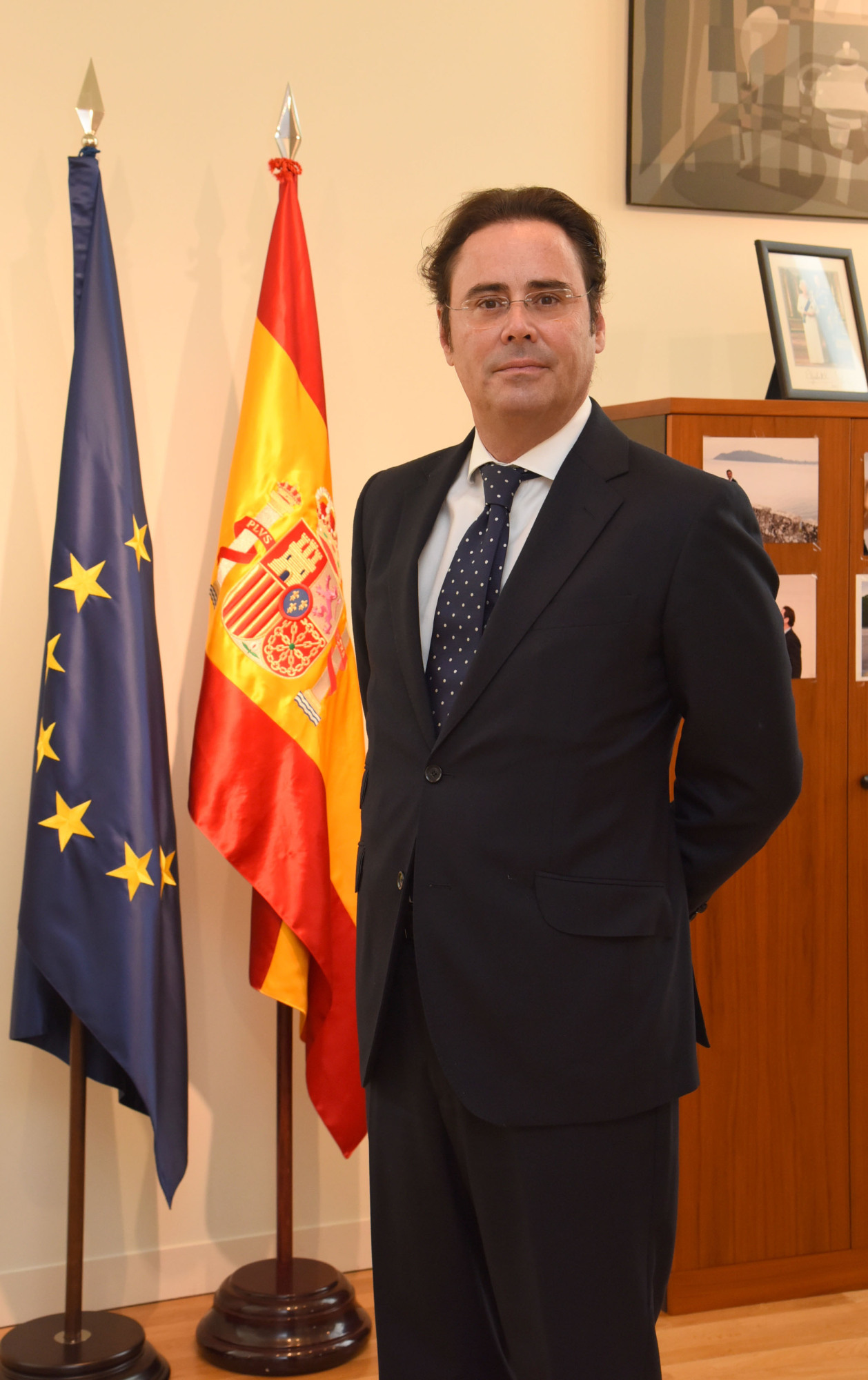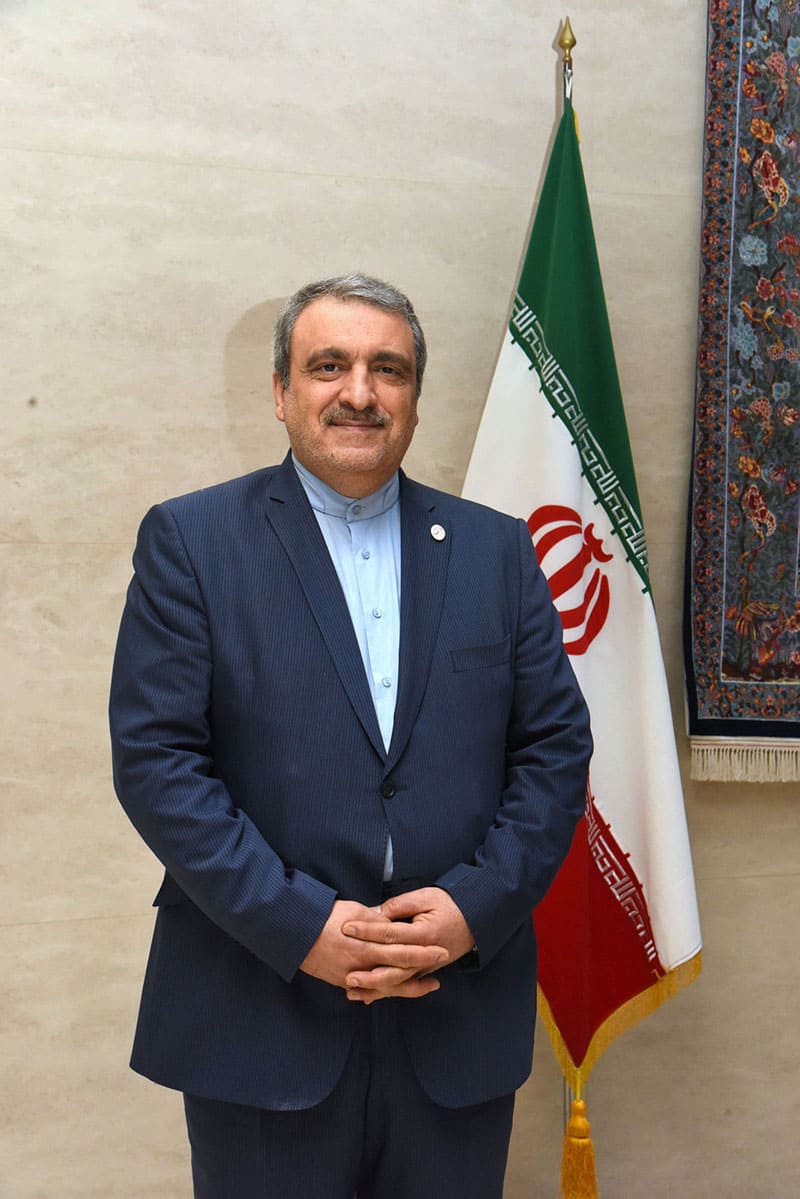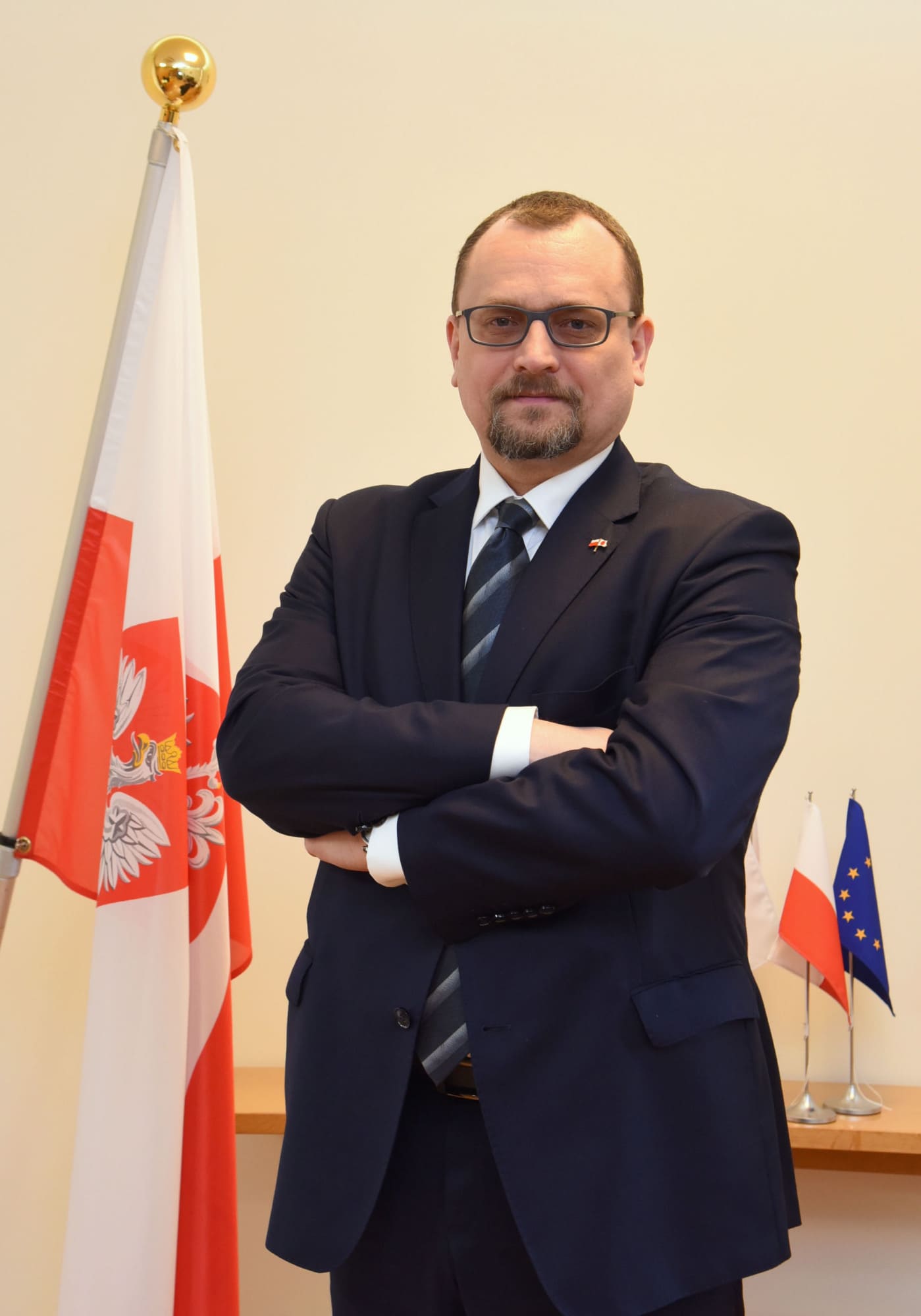
May 19, 2019
Ardent drive to promote Poland-Japan exchanges
Jacek Izydorczyk shares his areas of interest and objectives as ambassador
BY JOE MUNTAL
CONTRIBUTING WRITER
- Name: Jacek Izydorczyk
- Title: Ambassador of the Republic of Poland to Japan (since May 2017)
- URL: https://tokio.msz.gov.pl
- DoB: July 1, 1972
- Hometown: Tomaszow Mazowiecki, Poland
- Years in Japan: 4
As a scholar of Japanese law, Polish Ambassador Jacek Izydorczyk brings a distinct cultural understanding to the diplomatic world, where he works day in and day out to deepen ties between Poland and Japan.
Izydorczyk first came to Japan in 2005 to study at Kyushu University as a doctoral student.
He had made the decision to come to this country after learning about a scholarship opportunity that would allow him to study in Japan and gain expertise in Japanese law, a field in which there were few Polish experts at the time.
Soon after his arrival, Izydorczyk experienced a moment that portended his enduring relationship with Japan. At Kyushu University’s international center, he came across a whiteboard that had words from various languages written on it. In the center of the whiteboard was the word “przeznaczenie,” or “destiny” in Polish. This was striking, especially considering that there were no other Polish students at the university. This fateful moment left a lasting impression on Izydorczyk, and when he was arranging his return to Japan over a decade later in 2017 — this time as ambassador — he made sure the date of his departure would be March 29, the same day he had left Japan 10 years earlier.
Izydorczyk is an expert in criminal law, particularly in how it pertains to white-collar crime. His areas of interest encompass criminal procedures and aspects of international law, having written numerous articles and books on these subjects. For Izydorczyk, the differences between Western and Japanese legal practices and how cultural contexts influence these differences have been a source of fascination for many years.
“Western culture is based on Greek philosophy, Roman law and Christianity, but this isn’t the case for Japan,” Izydorczyk explained. “Last year marked the 150th anniversary of the Meiji Restoration, after which Japan introduced aspects of French and later German law. Following the Second World War, Japan introduced American law, which means Japanese law is a mixture of French, German and Anglo-Saxon ideas.”
Although Japanese law borrows from Western legal systems, Izydorczyk stresses that knowledge of Japanese language and culture is essential in attempting to grasp how Japanese law actually functions. “It’s not only a different culture; it’s a different civilization, which is what makes it such an interesting research topic,” he said.
Izydorczyk’s assignment in Japan coincides with a major milestone this year between Poland and Japan — the 100th anniversary of the establishment of diplomatic relations between the two countries.
Several notable events have taken place over the course of this 100-year history, such as in 1920, when Japan rescued hundreds of Polish orphans from war-torn Russia during the Russian Revolution and brought them to the town of Tsuruga in Fukui Prefecture. Twenty years later in 1940, groups of Jewish refugees fleeing Nazi persecution arrived at the same town with transit visas given to them by Chiune Sugihara, the celebrated Japanese official who helped approximately 6,000 Jews from occupied Poland and Lithuania flee Europe during World War II. Many of these refugees received assistance from the diplomat who had issued transit visas for their safe travel to other countries. At a ceremony commemorating this significant moment of humanitarian solidarity, Izydorczyk met a descendant of a refugee who was able to flee to Canada thanks to one of these lifesaving visas.
A number of events will be held in Japan and Poland to commemorate the 100 years of relations between the two countries, including an exhibition of works by Polish artists at Nijo Castle in Kyoto; an exhibition dedicated to renowned Polish composer Fryderyk Chopin, featuring original manuscripts, at the Hyogo Prefectural Museum of Art in Kobe; and an international conference in Warsaw that will investigate the reception of Japanese culture and tradition in contemporary Polish art.
The 100th anniversary of relations between Poland and Japan comes off the heels of another 100th anniversary celebrated last year — that of Poland’s restoration of independence in 1918. To commemorate this occasion, the Warsaw Philharmonic Orchestra performed at Suntory Hall in Tokyo, where they were honored by Emperor Emeritus Akihito and Empress Emerita Michiko.
Izydorczyk’s motto — “every moment, be better” — reflects his ardent drive to continuously improve diplomatic ties and strengthen Poland’s identity in Japan. Before the interview, Izydorczyk had just finished having lunch with Crown Prince Akishino and Crown Princess Kiko, both of whom will be visiting Poland in June, marking their first international visit as the new crown prince and princess following the ascension of Emperor Naruhito on May 1.
Izydorczyk’s goal is to establish a “brand” for Poland in Japan. There are around 300 Polish businesses in Japan, and while some Polish organizations have achieved success in the video game industry, as well as the banking sector where they are developing new technology, Izydorczyk believes there is much room for further improvement.
According to Izydorczyk, a lack of information about Poland and negative, preconceived notions about the country are some of the main hurdles that Poland faces in its attempts to establish a strong identity in Japan. “I want to show Japanese people the true face of Poland,” Izydorczyk said. “Like Japan, Poland is a very safe, modern country with open-minded people, and I’m sure it’s a very attractive place for Japanese and other foreigners.” He added that with direct flights departing daily from Narita to Warsaw, it has never been easier to travel to Poland from Japan.
Distinct insight with specialized expertise
Jacek Izydorczyk has experienced life in Japan as a student, professor and diplomat, which has provided him with a distinct insight into Japanese culture. He is an expert in criminal law, in particular, that relating to white-collar crime, and has many articles and books published in his name. He first came to Japan in 2005 and returned to Poland in 2007 before returning a decade later in 2017 to take up his current assignment as ambassador. When he has energy, he likes to join his son’s kendo practice sessions on the weekends. A fan of motorcycles, he likes to unwind by riding his motorcycle for a couple of hours on the weekends. He also enjoys scuba diving, sometimes with “small” sharks near the Chiba coast. Showing a picture of himself face-to-face with a shark, he commented, “You don’t feel fear during such situations — just excitement.”

